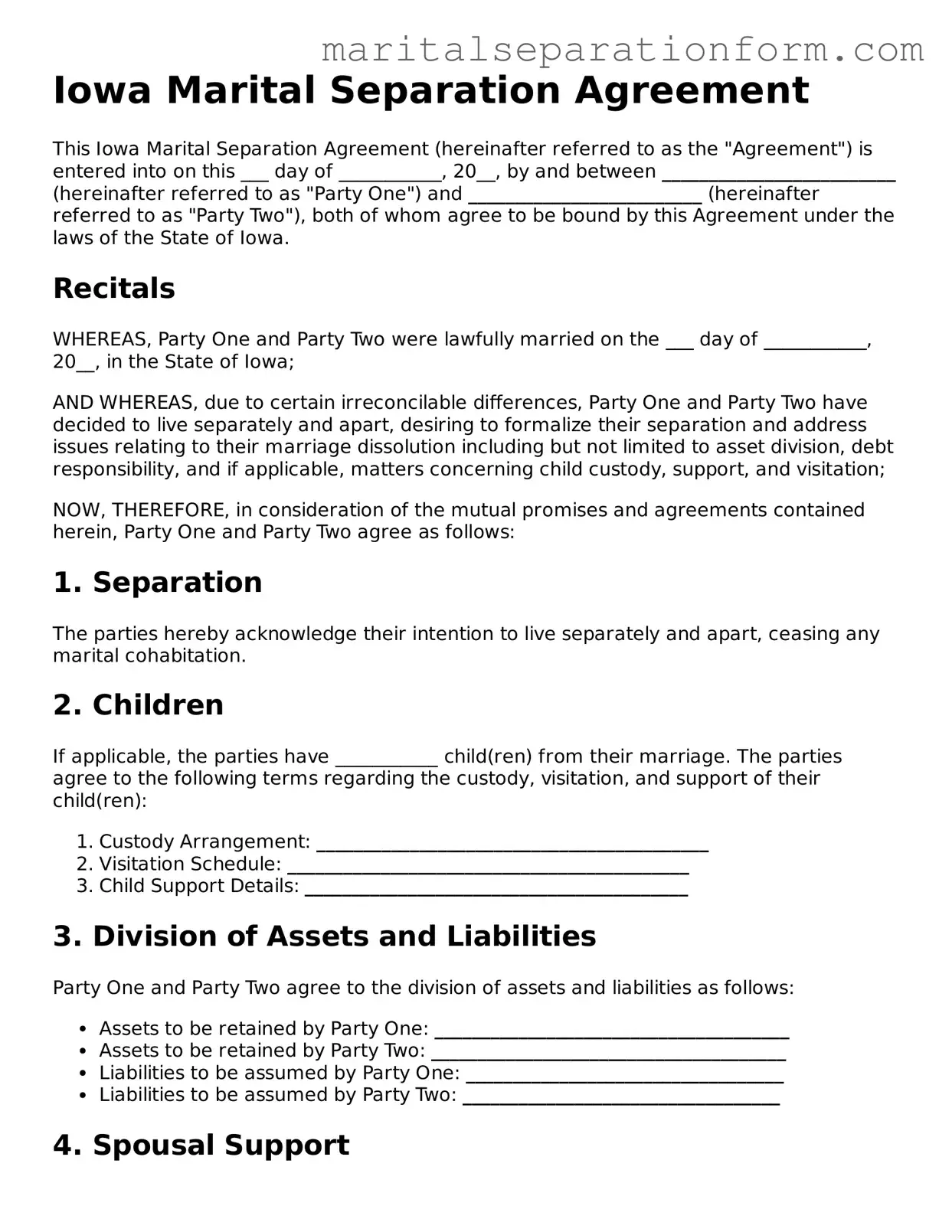Iowa Marital Separation Agreement
This Iowa Marital Separation Agreement (hereinafter referred to as the "Agreement") is entered into on this ___ day of ___________, 20__, by and between _________________________ (hereinafter referred to as "Party One") and _________________________ (hereinafter referred to as "Party Two"), both of whom agree to be bound by this Agreement under the laws of the State of Iowa.
Recitals
WHEREAS, Party One and Party Two were lawfully married on the ___ day of ___________, 20__, in the State of Iowa;
AND WHEREAS, due to certain irreconcilable differences, Party One and Party Two have decided to live separately and apart, desiring to formalize their separation and address issues relating to their marriage dissolution including but not limited to asset division, debt responsibility, and if applicable, matters concerning child custody, support, and visitation;
NOW, THEREFORE, in consideration of the mutual promises and agreements contained herein, Party One and Party Two agree as follows:
1. Separation
The parties hereby acknowledge their intention to live separately and apart, ceasing any marital cohabitation.
2. Children
If applicable, the parties have ___________ child(ren) from their marriage. The parties agree to the following terms regarding the custody, visitation, and support of their child(ren):
- Custody Arrangement: __________________________________________
- Visitation Schedule: ___________________________________________
- Child Support Details: _________________________________________
3. Division of Assets and Liabilities
Party One and Party Two agree to the division of assets and liabilities as follows:
- Assets to be retained by Party One: ______________________________________
- Assets to be retained by Party Two: ______________________________________
- Liabilities to be assumed by Party One: __________________________________
- Liabilities to be assumed by Party Two: __________________________________
4. Spousal Support
Regarding spousal support, the parties agree as follows (if applicable): ___________________________________________.
5. Entire Agreement
This document constitutes the entire agreement between the parties and supersedes any prior understanding or representation of any kind preceding the date of this Agreement. There are no other promises, conditions, understandings or other agreements, whether oral or written, relating to the subject matter of this Agreement.
6. Governing Law
This Agreement shall be governed and construed in accordance with the laws of the State of Iowa, without giving effect to any conflicts of laws principles.
7. Amendment
This Agreement may only be amended or modified by a written document executed by both parties.
8. Signatures
IN WITNESS WHEREOF, the Parties have executed this Agreement as of the date first above written.
Party One Name: __________________________________
Signature: __________________________________
Date: __________________________________
Party Two Name: __________________________________
Signature: __________________________________
Date: __________________________________

